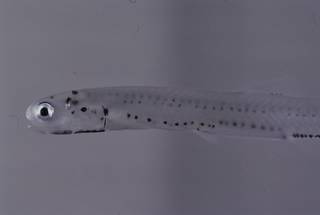Scheldt species taxon details
Engraulidae Gill, 1861
- Genus Engraulis Cuvier, 1816
marine, brackish, fresh, terrestrial
Not documented
Froese, R. and D. Pauly. Editors. (2025). FishBase. Engraulidae Gill, 1861. Accessed through: VLIZ Consortium Scheldt Species Register at: https://www.scheldemonitor.nl/speciesregister/aphia.php?p=taxdetails&id=125465 on 2025-09-11
VLIZ Consortium. Scheldt Species Register. Engraulidae Gill, 1861. Accessed at: https://www.scheldemonitor.nl/speciesregister/aphia.php?p=taxdetails&id=125465 on 2025-09-11
Date
action
by
taxonomy source
Van Der Laan, R.; Eschmeyer, W. N.; Fricke, R. (2014). Family-group names of Recent fishes. <em>Zootaxa.</em> 3882(1): 1-230., available online at https://doi.org/10.11646/zootaxa.3882.1.1 [details] Available for editors 
context source (PeRMS) Chirichigno, N.; Cornejo, M. (2001). Catálogo comentado de los peces marinos del Perú. <em>2ª ed. Instituto del Mar de Perú. Publicación Especial. Callao.</em> 314 p. [details]
basis of record van der Land, J.; Costello, M.J.; Zavodnik, D.; Santos, R.S.; Porteiro, F.M.; Bailly, N.; Eschmeyer, W.N.; Froese, R. (2001). Pisces, <B><I>in</I></B>: Costello, M.J. <i>et al.</i> (Ed.) (2001). <i>European register of marine species: a check-list of the marine species in Europe and a bibliography of guides to their identification. Collection Patrimoines Naturels,</i> 50: pp. 357-374 (look up in IMIS) [details]
additional source Fricke, R., Eschmeyer, W. N. & Van der Laan, R. (eds). (2025). ECoF. Eschmeyer's Catalog of Fishes: Genera, Species, References. <em>California Academy of Sciences. San Francisco.</em> Electronic version accessed dd mmm 2025., available online at http://researcharchive.calacademy.org/research/Ichthyology/catalog/fishcatmain.asp [details]
context source (PeRMS) Chirichigno, N.; Cornejo, M. (2001). Catálogo comentado de los peces marinos del Perú. <em>2ª ed. Instituto del Mar de Perú. Publicación Especial. Callao.</em> 314 p. [details]
basis of record van der Land, J.; Costello, M.J.; Zavodnik, D.; Santos, R.S.; Porteiro, F.M.; Bailly, N.; Eschmeyer, W.N.; Froese, R. (2001). Pisces, <B><I>in</I></B>: Costello, M.J. <i>et al.</i> (Ed.) (2001). <i>European register of marine species: a check-list of the marine species in Europe and a bibliography of guides to their identification. Collection Patrimoines Naturels,</i> 50: pp. 357-374 (look up in IMIS) [details]
additional source Fricke, R., Eschmeyer, W. N. & Van der Laan, R. (eds). (2025). ECoF. Eschmeyer's Catalog of Fishes: Genera, Species, References. <em>California Academy of Sciences. San Francisco.</em> Electronic version accessed dd mmm 2025., available online at http://researcharchive.calacademy.org/research/Ichthyology/catalog/fishcatmain.asp [details]
 Present
Present  Inaccurate
Inaccurate  Introduced: alien
Introduced: alien  Containing type locality
Containing type locality
| Language | Name | |
|---|---|---|
| English | anchovies | [details] |
